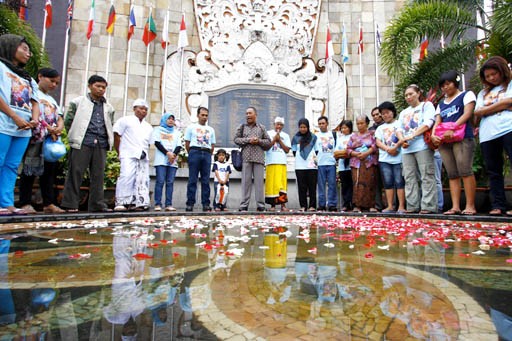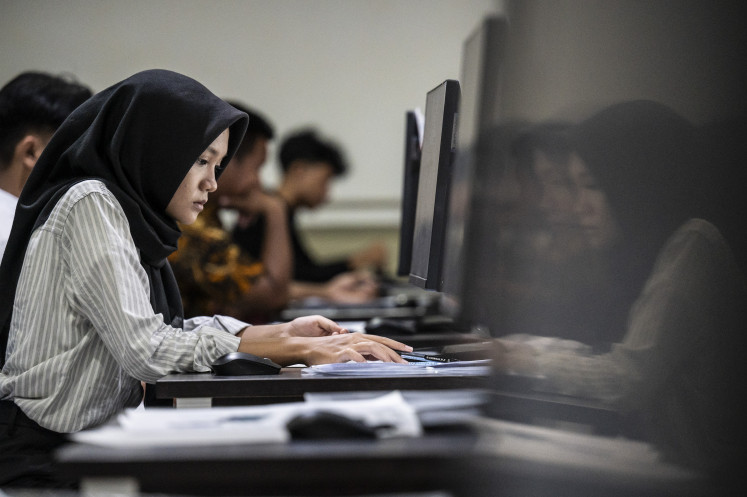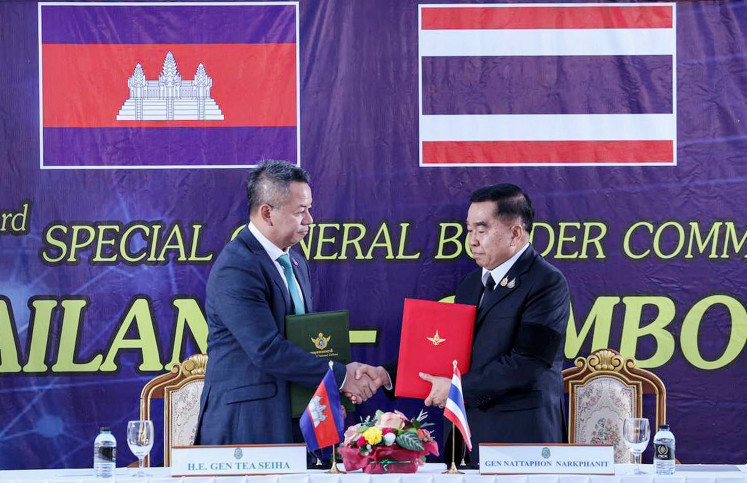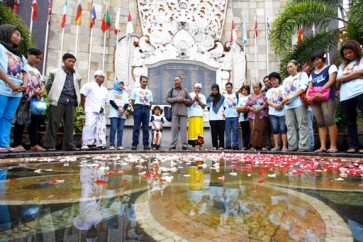Popular Reads
Top Results
Can't find what you're looking for?
View all search resultsPopular Reads
Top Results
Can't find what you're looking for?
View all search resultsIndonesia's veteran jihadis disapprove of the ISIS generation
Perhaps the younger extremists – notably ISIS supporters - penchant for social media, is understandable in the context of a digital native generation. But this behaviour makes the older generation nervous.
Change text size
Gift Premium Articles
to Anyone
A
new crop of Indonesian extremists, with their penchant for social media, is drawing the ire of an older generation. Will this fragmentation further weaken the jihadi movement in the South East Asian nation?
When Dian Yulia Novi was arrested in December for her role in a plot to bomb the presidential palace in Jakarta, Indonesians were enthralled by the discovery of what could have been the country's first female suicide bomber. The involvement of women as suicide bombers in Islamist extremist groups, increasingly commonplace in the Middle East and in sub-Saharan Africa, was hitherto a novel development in the world's most populous Muslim state.
General Tito Karnavian, chief of the Indonesian Police, cautioned that Dian was only one of several women under surveillance in connection with terror cells across the country. It was another Indonesian woman - Tutin Sugiarto, alias Ummu Absa – who had introduced Dian to Muhammad Solihin, the man she would eventually marry in order to facilitate her involvement as a jihadi suicide bomber. The match was made via the messaging app beloved of Islamist extremists, Telegram. What further captivated observers were Dian and Solihin's intricate descriptions of the plot. Soon after their arrest, both appeared in exclusive, no-holds-barred interviews with major Indonesian news agencies.
Indonesians may have been glued to their screens, but the media frenzy drew the ire of an older generation of jihadis, particularly members of transnational Islamist extremist group, Jemaah Islamiyya (JI).
Dian's plot had been thwarted with the cell's discovery by Detachment 88, a special forces counter-terrorism squad formed in the wake of the 2002 Bali bombing, which was perpetrated by JI. Following that attack and the 2003 Marriot Hotel blast in Jakarta, also by that group, Indonesia moved to put in place a concerted counter-terrorism framework. Detachment 88, and later the National Agency for Combating Terrorism (BNPT), were established to police terrorism. The legal framework, in the form of the Law on Combating Criminal Acts of Terrorism, was rapidly passed in 2003. Among other things, this allowed for suspects to be detained for up to six months in ongoing investigations.
Since the January 2016 attacks in Jakarta by ISIS supporters, the government has been pushing for a revision of the legislation to enable greater pre-emptive powers for security forces. Tighter surveillance, expanded police detention, and greater coordination between security services has meant the space in which Islamist extremist groups could operate freely is diminishing. As a result, they have needed to evolve to using less typical perpetrators of terrorism, such as women and children. They have also needed to move to looser networks of association to avoid detection, such as 'lone wolves' and 'wolf pack' cell structures, as is evident in other parts of the world.
In a number of conversations, older jihadis seemed to appreciate the need for newer extremist networks to operate in this manner. What they objected to in Dian's case, and in other self-radicalised ISIS supporters, was a supposed lack of clarity over the jihad for which they claimed to be fighting. In their eyes, this younger generation treated jihad as a means to satisfy their desire for adventurism and attention. JI members who had trained in Afghanistan and the southern Philippines were quick to point out that this younger generation were more social media personalities than jihadis. They saw them as having little established jihadi credentials or expertise, but plenty of Facebook updates.


















